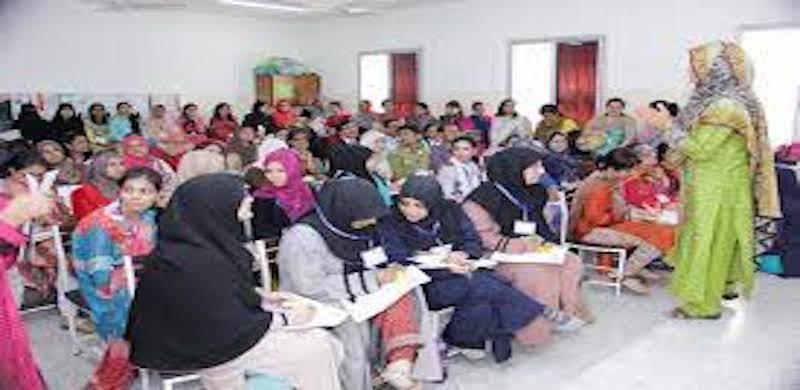
I remember my uncle calling me from abroad, asking me to abstain from any academic discourses in university; not to talk or debate about any sensitive religious or political topic as it might offend people with different and more rigid opinions and could endanger my life. I had to keep the burden of my thoughts to myself. It was rather difficult.
Universities are places where a student achieves personal growth, explores different experiences and learns the art of thinking. Unfortunately, in the universities of Pakistan, students are stuck in an eternal cycle of cramming information. They are not encouraged to process or make any sense of that knowledge and analyse things rationally.
Critical thinking is about using one’s ability to reason. It encourages not syncing with the already accepted dogmas and challenging them. In places where social sciences are taught, this skill is cultivated in students so that they can think for themselves. However in Pakistan, this pursuit of truth is discouraged and the students’ quest for knowledge is blunted.
I am a student of international relations and what I have learnt is that professors have a deep sense of fear (fear is not even misplaced, given a number of cases of misguided students in class accusing Professors of heresy and subjecting them to fatal violence) which forces them to subject themselves to self-censorship. Students are deprived of their right to ‘know’ because a teacher lacks the courage to ‘tell’.
"Despite my job to encourage students to debate and open new arenas of knowledge, I have to pause as soon as a student unduly brings religion into the debate, because it is a red line in this country. You could be lynched for it, dubbed anti-religion and no professor wants to put himself/herself in a life threatening situation," a professor of mine told me.
“We cannot state reality, let alone our viewpoints, or opinions. We are scared that a student belonging to a different belief system might find our views blasphemous," the professors say.
I am not talking about some local hujra where we can expect high logic and reason being talked about. I am talking about universities where the seekers of knowledge ought to welcome diversity and tolerance. We have to understand that uniformity of opinions can only exist in graveyards.
We are now running out of time. In order to prepare for the radical uncertainties, teachers have to encourage the students to not accept normative claims, and think for themselves. Students need to know who they are and what they want from their lives. Moreover, everyone needs to find their own distinctive answers.
If Pakistan wants to progress, it has to nurture a safe environment for its teacher and pupils, and alter its path sooner or later.
Universities are places where a student achieves personal growth, explores different experiences and learns the art of thinking. Unfortunately, in the universities of Pakistan, students are stuck in an eternal cycle of cramming information. They are not encouraged to process or make any sense of that knowledge and analyse things rationally.
Critical thinking is about using one’s ability to reason. It encourages not syncing with the already accepted dogmas and challenging them. In places where social sciences are taught, this skill is cultivated in students so that they can think for themselves. However in Pakistan, this pursuit of truth is discouraged and the students’ quest for knowledge is blunted.
I am a student of international relations and what I have learnt is that professors have a deep sense of fear (fear is not even misplaced, given a number of cases of misguided students in class accusing Professors of heresy and subjecting them to fatal violence) which forces them to subject themselves to self-censorship. Students are deprived of their right to ‘know’ because a teacher lacks the courage to ‘tell’.
"Despite my job to encourage students to debate and open new arenas of knowledge, I have to pause as soon as a student unduly brings religion into the debate, because it is a red line in this country. You could be lynched for it, dubbed anti-religion and no professor wants to put himself/herself in a life threatening situation," a professor of mine told me.
“We cannot state reality, let alone our viewpoints, or opinions. We are scared that a student belonging to a different belief system might find our views blasphemous," the professors say.
I am not talking about some local hujra where we can expect high logic and reason being talked about. I am talking about universities where the seekers of knowledge ought to welcome diversity and tolerance. We have to understand that uniformity of opinions can only exist in graveyards.
We are now running out of time. In order to prepare for the radical uncertainties, teachers have to encourage the students to not accept normative claims, and think for themselves. Students need to know who they are and what they want from their lives. Moreover, everyone needs to find their own distinctive answers.
If Pakistan wants to progress, it has to nurture a safe environment for its teacher and pupils, and alter its path sooner or later.

